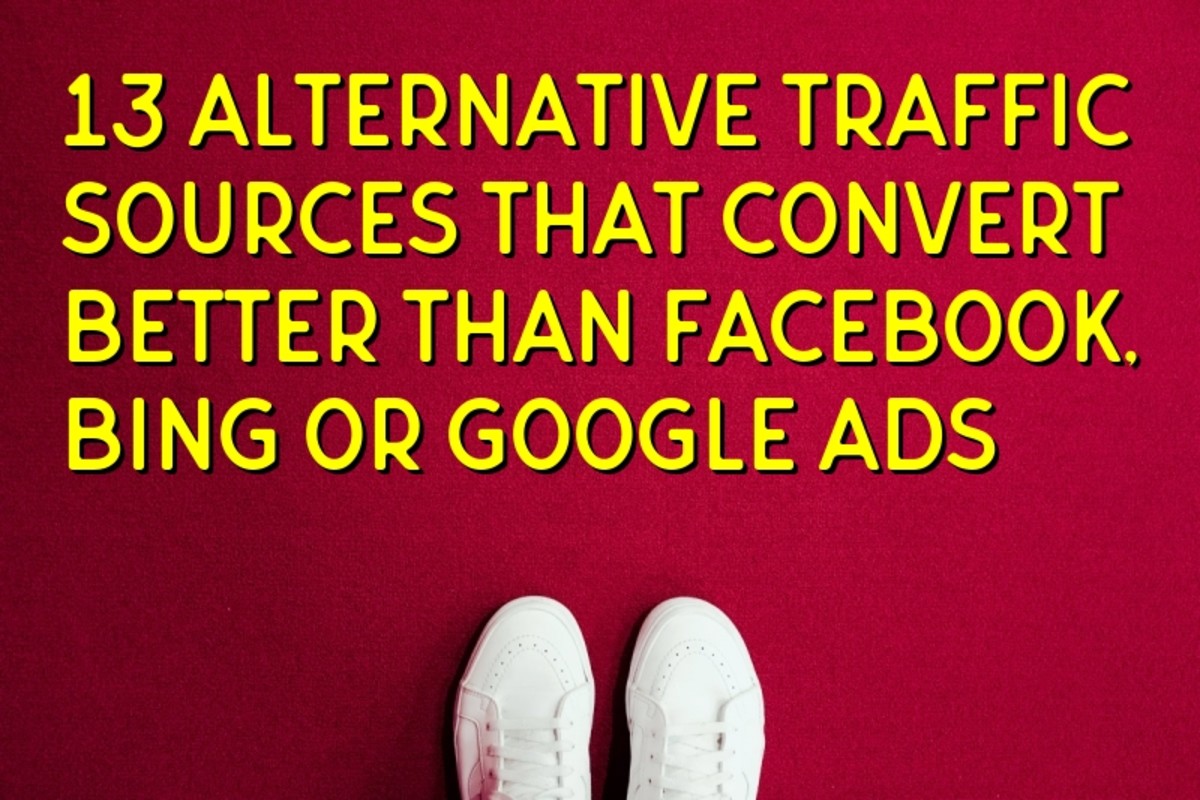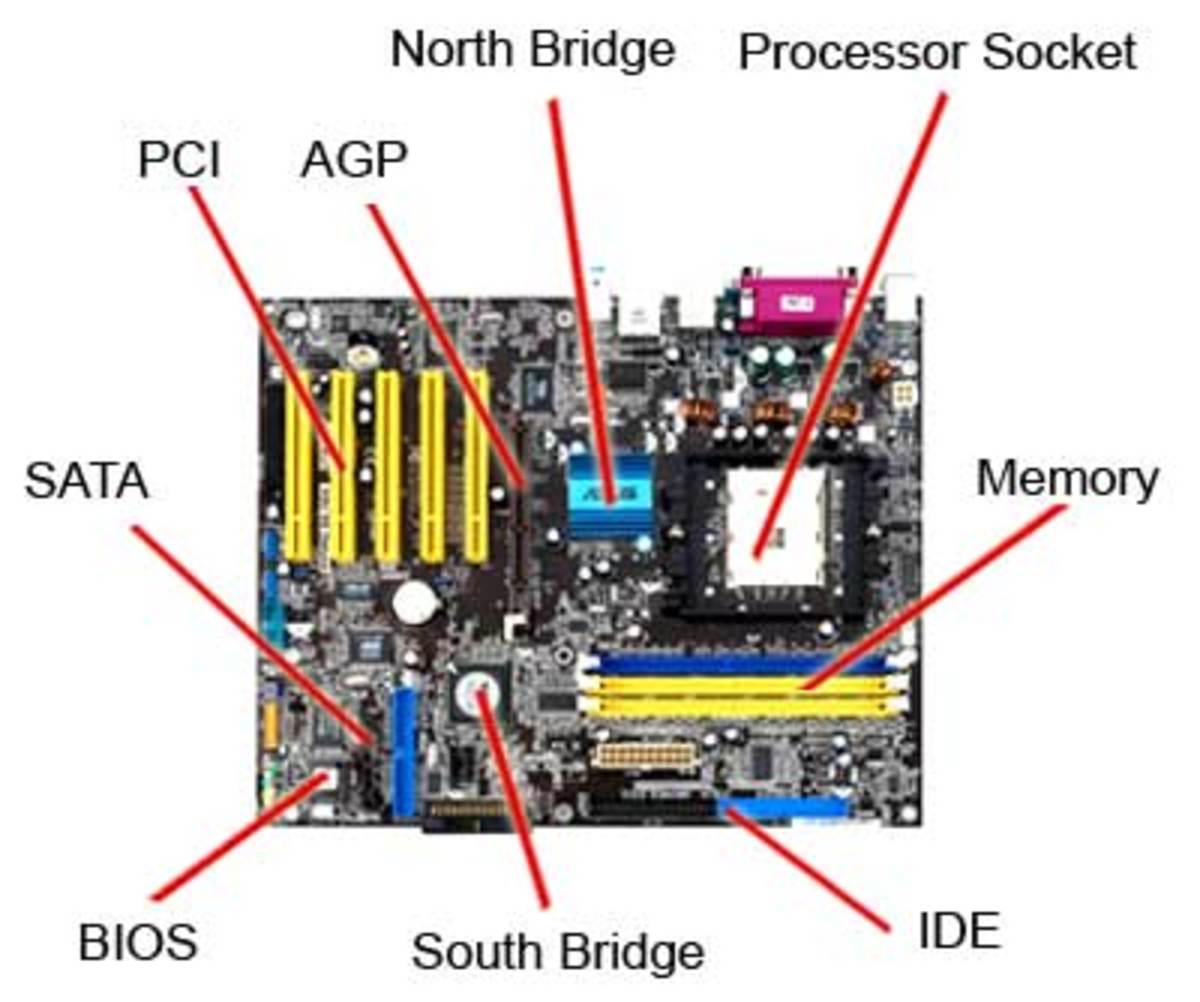The Age of Computer Technology: The Good, the Bad, and the Downright Scary
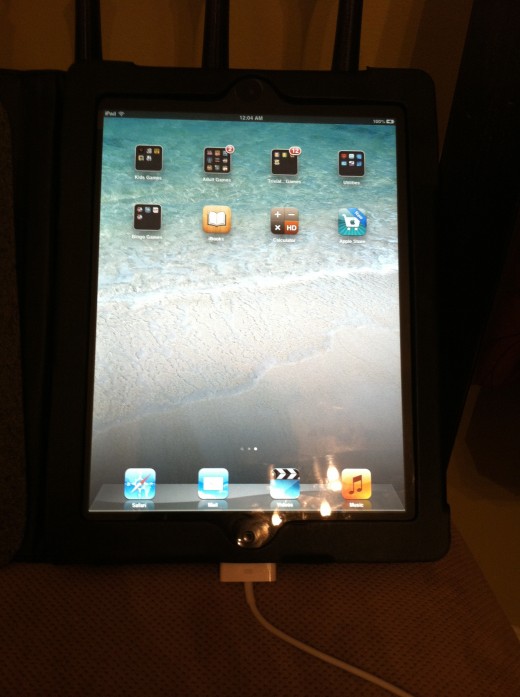
Once upon a time....
Once upon a time, before there were computers, or cell phones, or i-pods, (not all that long ago) people actually were able to come up with ways to amuse themselves. ( I know; it's a stretch, but bear with me.) Not only that....they even managed to communicate in real time. Really.
Back then, if you were looking for a relaxing but mentally stimulating activity, you could draw (if so inclined), play a game (remember Monopoly and Scrabble?), or even read a book (not the virtual facsimiles of the present). For that matter, you could even write a book. Of course, you can do all of those things now, too, but with the added stimulation and assistance of technology.
Do I mean to say, then, that technology is a bad thing? Not at all. In fact, I marvel at all I’ve been able to accomplish with the aid of my technological devices: read books on my Nook, play Words With Friends and take pictures on my iphone, send e-mails or texts, and, best all of, turn to Google whenever I I have an inquiry. To think it was just 20 years ago that I got my first computer, a bulky desktop model provided to faculty members by our school district. (The middle school where I taught at the time was one of the first in our district to enter the Era of Computer Technology, thanks to the efforts of two of my friends and colleagues, who were indeed pioneers in the field.) I couldn’t have imagined back then how computer technology would benefit me and my family.
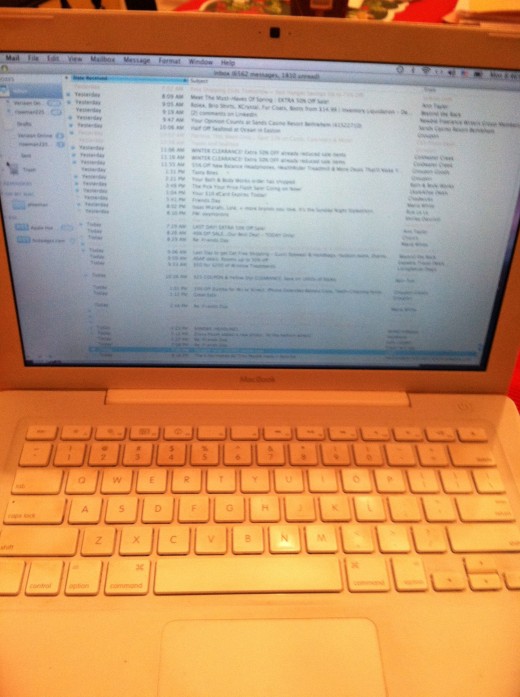
Back to the Beginning....
Let’s back up a bit, to the mid-1930’s, when the Computer Age began in Germany with the introduction of the first programmable computer. (Who could have predicted how quickly technology would become such an integral part of modern-day living?) In 1937, the first electronic digital computer was designed at Iowa State University, and in 1946 the construction of ENIAC (which, at 50 tons, occupied 1800 square feet at the University of Pennsylvania) was completed. Computers certainly have come a long way from the Univac, the first computer that could store and run a program from memory, which appeared in the United States in the 1950’s. ( The Univac is the first computer that I actually recall seeing... probably on TV and/or at The Smithsonian Institute. All I can recall about the Univac is that it looked like some kind of sci fi monstrosity.) In 1968, Hewlett Packard introduced the PC to a mass market. It might be hard to believe, but the 1st laptop ( from IBM in 1975) weighed 55 pounds. ( By 1984, IBM had managed to get the weight down to 30 pounds, and by 1986, to 12 pounds.) Steve Wozniak developed the Apple 1, which since its appearance in 1976 has undergone a mind-boggling number of incarnations. From that point on, in fact, and with much help from young geniuses with a vision (e.g., Bill Gates, Steve Jobs, etc.) the Computer Era has burgeoned.
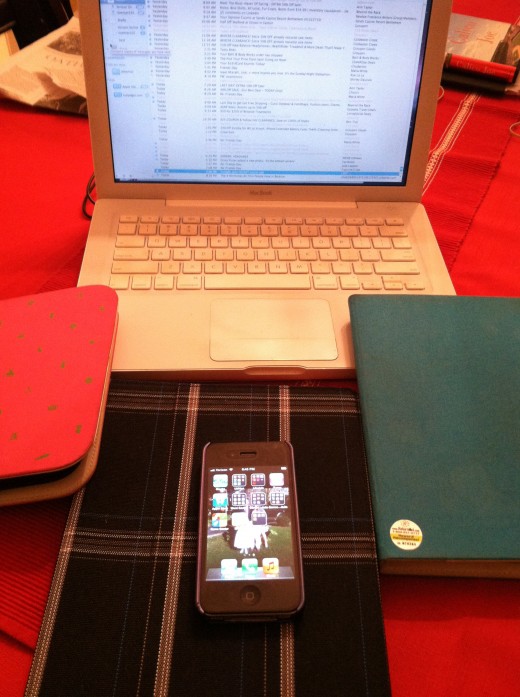
Technology Today
As the face of the computer has changed relatively quickly, so have its functions. The bar graphs and flow charts of the computer’s infancy have been tweeked, modernized, and streamlined ad infinitum. Computer ownership and usage have expanded far beyond the realms of business and science into the tricky landscape of the social network, the netherworld of virtual reality, etc. Just about anyone can become technologically energized. All you have to do is familiarize yourself with some dependable search engines (Google, Netscape Navigator, etc.), learn to speak the jargon of “keywords,” sign on to the social networks of your choice (Facebook, Twitter, etc.) and you’ll be ready to reap the rewards of computer literacy. There are, of course, countless rewards. If you need to type a research paper, keep a journal, write a poem, or perform any number of tasks geared to business and/or pleasure, just open the word processing function on your computer. If you need to do some research for that paper you’re writing, your job, or just for your own eidfication, tap a few keywords into a search engine and voila’, all the informaton you need will appear. If you want to check out what your friends have been up to or share something significant in your life, sign into Facebook. E-mail is another excellent way to stay current. If you have a tablet device or smartphone, texting offers another method of instant messaging. If you’re in the mood for music, movies, games, or books, they, too, are just a few clicks away.
If you choose to read on-the-go, you probably have a Nook, a Kindle, or another type of e-reader. The major advantage of an e-reader is its size and portability. If you enjoy spending much of your vacations reading, it certainly is much easier to take your e-reader with you rather than to carry several books. The downside of an e-reader is, of course, if you like to underline or highlight selected sections of the book and/or make notes in the margin, you certainly would find that a bit of a challenge on an e-reader. If textbooks were loaded on e-readers, itwould eliminate the need for those bulky bookbags that have been responsible for so many back and shoulder issues. One downside to that idea, though, is that it would be difficult to mark important pages/passages with post-it notes and/or bookmarks. The same advantages and disadvantages apply to a notebook device like the IPad. A smartphone is the optimal “portable computer”.... if you’re willing to scroll through about 10 virtual pages to read one "real time" page of a book.
The Downside
At this point you might be thinking, “Isn’t it wonderful to be part of the Technological Age?” My answer to that would be a qualified, “Perhaps.”
Despite the fact that I admit to being somewhat “technology-dependent,” I remain very much aware of the dangers.... and dangers there are. For one thing, many people don’t realize that every time you use Google or any other search engine, you can’t be certain whether the sources that pop up so quickly are reliable. Consider Wikipedia, for example. I’ve read countless articles that discredit the reliability of information found on that site; and, on occasion disclaimers actual pop up on the source itself stating that the information contained therein might be “incomplete” or “unverified.” (This isn’t aIways the case; I have read some excellect articles on Wikipedia.) If you reference a site such as MayoClinic or medicine.net, you can be fairly certain that the information is correct. On the other hand, you might be directed by a search engine to less-than-reliable source ( such as someone’s personal blog) for an answer to your query. Like Wikipedia, some blogs might top-notch sources, but others are.... well, blogs.
Privacy? Don't look Now....
One of the most serious problems with technology today is the issue of privacy. It might be wise to remember that no matter how much spyware you have on your computer or how technologically savvy you might be, it’s a fact that anything you put into your computer immediately enters the realm of public knowledge . No one knows this better than I, who, despite being wary of Facebook, Twitter, online banking, and online shopping, was shocked to learn that my credit card had been compromised as I made a purchase from HSN during the Holiday season. Thanks to the vigilance of my bank, the card was cancelled immediately. (A red flag had gone up when someone charged over $200 of Domino’s pizza to my caed.) I was notified the next day. Although I was not liable for any amount of the hacker’s charges to my card, I felt vulnerable and violated. Another example: a “Craigslist Crook” recently was arrested locally. This particular felon met his marks after reading posting of items for sale on Craislist. When he met with the sellers/victims (ostensibly to buy cell phones or similar items from them), he turned the tables and robbed them.
Financial privacy is not all that can be violated in a technology-dependent world. The same day that I had the disturbing phone call from my bank’s fraud department, I learned from a visibly shaken department store clerk that someone had hacked into his e-mail account. And how about this "request" that pops up almost every time I try to do some research using Google: " 'https://www.google.com' would like to use your current location." What? Why does Google need to know my current location? Despite the fact that I hit "don't allow" as soon as that ridiculous "request" appears, I wouldn't be surprised if Google or any other search engine is able to track someone's whereabouts with or without his/her "permission."
I’ve been saving- if not the best, at least the most controversial- for last. That would be, of course, The Social Network and all it entails. I have come to regard that term as the greatest misnomer and/or the most perfect example of an oxymoron of the past 15-20 years. Let’s begin with texting, for example. Just how “social” can it be when you’re sitting across from another person at a table in a restaurant, and instead of conversing with your companion, the two of you are playing games on your smartphones and/or tweeting/ sending text messages fast and furiously to other people? (been there, done that, I’m afraid.) In many ways, The Social Network in all its manifestations seems to have negated the real-time, here-and-now nature of a true Social Network . While we’re on the subject, just how “social” (or appropriate, for that matter) are some of the stream-of-consciousness comments found on Twitter? Why do some people feel compelled to share what they had for breakfast, what random thoughts are running through their heads, or whom they love/ hate ? Who cares, except perhaps their mothers (or their couselors)? Keep in mind, too, that privacy claims notwithstanding, anyone who is intent on locating you through Facebook usually can find a way to do just that, and not always with the best of intentions. Also, you might be who you say you are, doing what you claim to be doing on Facebook ; unfortunately, that doesn’t guarantee that other people are as trustworthy. Do you really want everyone to know your business, view pictures of your children, be aware of exactly where you live and when you’re going on vacation (leaving a vacant house), etc.? If more people would think of Facebook, Twitter, texting, etc. as public diaries, (which is, in essence, what they are) far less harm might result from crawling out on a limb of one of the branches of the tangled tree that the social network has become.
It almost goes without saying that one of the horrors that appeared along with advances in computer technology is cyber bullying. There are far too many documented stories that ended tragically thanks to mean-spirited individuals who felt they had to make up for their own deficiencies by tormenting others through manipulation of the social network. (Remember how hurtful “slam books” back in the days of junior high school were? Well, think of cyber bullying as slam books gone viral.) Then there’s Match.com and all those other e-dating sites. Those matches might seem ideal in e-time, but the real-time stories often don’t turn out quite that way. For example, the vital statistics and/or photograph posted on the site could be a bit off the mark, if not downright false. One of my firends claimed that while the picture she’d accessed on the dating site definitely was the person who showed up for the real-time date, the photograph literally was dated, i.e., taken about 20 years prior. Another example: the recent case of the Notre Dame football star who fell in love with someone who didn’t exist. “Fairy tale endings” are called that for a reason.
Disclaimer: This Is Not An Advertisement
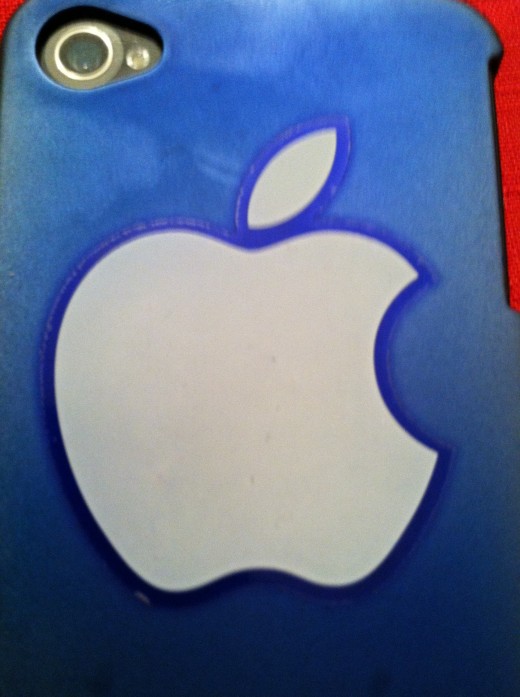
Something that really puzzles me is public acceptance of all that free advertising generated by businesses and services that offer some version of this: “Like” us on Facebook and be entered for a chance to win &100. Think about it. If just a porion of the 50 milion Facebook Followers take that bait, it has cost the business or service provider a mere pittance to advertise on countless Facebook pages. An added bonus for them: they can be fairly certain that you’re going to trust all those Best Buddies on Facebook far more than you would an unknown actor appearing in a TV commercial that would cost thousands of dollars. Whoever came up with the like us on Facebook advertising ploy must be congratulated on his/her genius. Talk about "laughing all the way to the bank!"
So What's the Solution?
The question remains: how, then, do we use all this state-of-the-art technology to our advantage without alllowing it to use and abuse us? Perhaps it would help to keep in mind the words of Aldous Huxley in Brave New World Revisited ( written way back in 1958): “But the nature of things is such that nobody in this world ever gets anything for nothing. These amazing and admirable advances have had to be paid for. Indeed, like last year’s washing machine, they are still being paid for-- and each installment is higher than the last.” Let us make a concerted effort, at least, to use the incredible technological gifts we have been given with caution and acute awareness so that we can enjoy them without contributing to an escalating "price tag" from which there would be no recourse.





